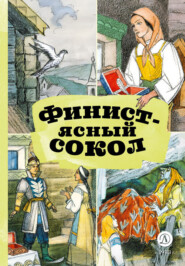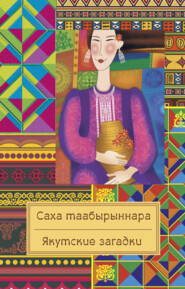По всем вопросам обращайтесь на: info@litportal.ru
(©) 2003-2024.
✖
A plain and literal translation of the Arabian nights entertainments, now entituled The Book of the Thousand Nights and a Night. Volume 7 (of 17)
Год написания книги
2018
Настройки чтения
Размер шрифта
Высота строк
Поля
She continued, It hath reached me, O auspicious King, that when Yunus the Scribe said to Walid, “Allah forbid I should repent over her! Had I made gift of her to the Prince, she were the least of gifts that are given to him, nor indeed is she worthy of his rank,” Walid rejoined, “By Allah, but I repented me of having carried her away from thee and said to myself:—This man is a stranger and knoweth me not, and I have taken him by surprise and acted inconsiderately by him, in my haste to take the damsel! Dost thou recall what passed between us?” Quoth Yunus, “Yes!” and quoth Walid, “Dost thou sell this damsel to me for fifty thousand dirhams?” And Yunus said, “I do.” Then the Prince called to one of his servants to bring him fifty thousand dirhams and a thousand and five hundred dinars to boot, and gave them all to Yunus, saying, “Take the slave’s price: the thousand dinars are for thy fair opinion of us and the five hundred are for thy viaticum and for what present thou shalt buy for thy people. Art thou content?” “I am content,” answered Yunus and kissed his hands, saying, “By Allah, thou hast filled my eyes and my hands and my heart!” Quoth Walid, “By Allah, I have as yet had no privacy of her nor have I taken my fill of her singing. Bring her to me!” So she came and he bade her sit, then said to her, “Sing.” And she sang these verses:—
O thou who dost comprise all Beauty’s boons!
O sweet of nature, fain of coquetry!
In Turks and Arabs many beauties dwell;
But, O my fawn, in none thy charms I see.
Turn to thy lover, O my fair, and keep
Thy word, though but in visioned phantasy:
Shame and disgrace are lawful for thy sake
And wakeful nights full fill with joy and glee:
I’m not the first for thee who fared distraught;
Slain by thy love how many a many be!
I am content with thee for worldly share
Dearer than life and good art thou to me!
When he heard this, he was delighted exceedingly and praised Yunus for his excellent teaching of her and her fair education. Then he bade his servants bring him a roadster with saddle and housings for his riding, and a mule to carry his gear, and said to him, “O Yunus, when it shall reach thee that command hath come to me, do thou join me; and, by Allah, I will fill thy hands with good and advance thee to honour and make thee rich as long as thou livest!” So Yunus said, “I took his goods and went my ways; and when Walid succeeded to the Caliphate, I repaired to him; and by Allah, he kept his promise and entreated me with high honour and munificence. Then I abode with him in all content of case and rise of rank and mine affairs prospered and my wealth increased and goods and farms became mine, such as sufficed me and will suffice my heirs after me; nor did I cease to abide with Walid, till he was slain, the mercy of Almighty Allah be on him!” And men tell a tale concerning
HARUN AL-RASHID AND THE ARAB GIRL
The Caliph Harun al-Rashid was walking one day with Ja’afar the Barmecide, when he espied a company of girls drawing water and went up to them, having a mind to drink. As he drew near, one of them turned to her fellows and improvised these lines:—
Thy phantom bid thou fleet, and fly
Far from the couch whereon I lie;
So I may rest and quench the fire,
Bonfire in bones aye flaming high;
My love-sick form Love’s restless palm
Rolls o’er the rug whereon I sigh:
How ’tis with me thou wottest well
How long, then, union wilt deny?
The Caliph marvelled at her elegance and eloquence.–And Shahrazad perceived the dawn of day and ceased to say her permitted say.
Now when it was the Six Hundred and Eighty-sixth Night,
She resumed, It hath reached me, O auspicious King, that the Caliph, hearing the girl’s verses, marvelled at her elegance and eloquence, and said to her, “O daughter of nobles, are these thine own or a quotation?” Replied she, “They are my very own,” and he rejoined, “An thou say sooth keep the sense and change the rhyme.” So she said:—
Bid thou thy phantom distance keep
And quit this couch the while I sleep;
So I may rest and quench the flames
Through all my body rageful creep,
In love-sick one, whom passion’s palms
Roll o’er the bed where grief I weep.
How ’tis with me thou wottest well;
All but thy union hold I cheap!
Quoth the Caliph, “This also is stolen”; and quoth she, “Nay, ’tis my very own.” He said, “If it be indeed thine own, change the rhyme again and keep the sense.” So she recited the following:—
Unto thy phantom deal behest
To shun my couch the while I rest,
So I repose and quench the fire
That burns what lieth in my breast,
My weary form Love’s restless palm
Rolls o’er with boon of sleep unblest.
How ’tis with me thou wottest well
When union’s bought ’tis haply best!
Quoth Al-Rashid, “This too is stolen”; and quoth she, “Not so, ’tis mine.” He said, “If thy words be true change the rhyme once more.” And she recited:—
Drive off the ghost that ever shows
Beside my couch when I’d repose,
So I may rest and quench the fire
Beneath my ribs e’er flames and glows,
In love-sick one, whom passion’s palms
Roll o’er the couch where weeping flows,
How ’tis with me thou wottest well
Will union come as union goes?
Then said the Caliph, “Of what part of this camp art thou?”; and she replied, “Of its middle in dwelling and of its highest in tent-poles.”[113 - The tents of black wool woven by the Badawi women are generally supported by three parallel rows of poles lengthways and crossways (the highest line being the central) and the covering is pegged down. Thus the outline of the roofs forms two or more hanging curves, and these characterise the architecture of the Tartars and Chinese; they are still preserved in the Turkish (and sometimes in the European) “Kiosque,” and they have extended to the Brazil where the upturned eaves, often painted vermilion below, at once attract the traveller’s notice.] Wherefore he knew that she was the daughter of the tribal chief. “And thou,” quoth she, “of what art thou among the guardians of the horses?”; and quoth he, “Of the highest in tree and of the ripest in fruit.” “Allah protect thee, O Commander of the Faithful!” said she, and kissing ground called down blessings on him. Then she went away with the maidens of the Arabs, and the Caliph said to Ja’afar, “There is no help for it but I take her to wife.” So Ja’afar repaired to her father and said to him, “The Commander of the Faithful hath a mind to thy daughter.” He replied, “With love and goodwill, she is a gift as a handmaid to His Highness our Lord the Commander of the Faithful.” So he equipped her and carried her to the Caliph, who took her to wife and went in to her, and she became of the dearest of his women to him. Furthermore, he bestowed on her father largesse such as succoured him among Arabs, till he was transported to the mercy of Almighty Allah. The Caliph, hearing of his death, went in to her greatly troubled; and, when she saw him looking afflicted, she entered her chamber and doffing all that was upon her of rich raiment, donned mourning apparel and raised lament for her father. It was said to her, “What is the reason of this?”; and she replied, “My father is dead.” So they repaired to the Caliph and told him and he rose and going in to her, asked her who had informed her of her father’s death; and she answered “It was thy face, O Commander of the Faithful!” Said he, “How so?”; and she said, “Since I have been with thee, I never saw thee on such wise till this time, and there was none for whom I feared save my father, by reason of his great age; but may thy head live, O Commander of the Faithful!” The Caliph’s eyes filled with tears and he condoled with her; but she ceased not to mourn for her father, till she followed him—Allah have mercy on the twain! And a tale is also told of
AL-ASMA’I AND THE THREE GIRLS OF BASSORAH
The Commander of the Faithful Harun Al-Rashid was exceeding restless one night and rising from his bed, paced from chamber to chamber, but could not compose himself to sleep. As soon as it was day, he said, “Fetch me Al-Asma’i!”[114 - See vol. iv., 159. The author of “Antar,” known to Englishmen by the old translation of Mr. Terrick Hamilton, secretary of Legation at Constantinople. There is an abridgement of the forty-five volumes of Al-Asma’i’s “Antar” which mostly supplies or rather supplied the “Antariyyah” or professional tale-tellers; whose theme was the heroic Mulatto lover.] So the eunuch went out and told the doorkeepers; these sent for the poet and when he came, informed the Caliph who bade admit him and said to him, “O Asma’i, I wish thee to tell me the best thou hast heard of stories of women and their verses.” Answered Al-Asma’i, “Hearkening and obedience! I have heard great store of women’s verses; but none pleased me save three sets of couplets I once heard from three girls.”–And Shahrazad perceived the dawn of day and ceased saying her permitted say.
Now when it was the Six Hundred and Eighty-seventh Night,
She pursued, It hath reached me, O auspicious King, that Al-Asma’i said to the Prince of True Believers, “Verily I have heard much, but nothing pleased me save three sets of couplets improvised by as many girls.” Quoth the Caliph, “Tell me of them,” and quoth he, “Know then, O Commander of the Faithful, that I once abode in Bassorah, and one day, as I was walking, the heat was sore upon me and I sought for a siesta-place but found none. However by looking right and left I came upon a porch swept and sprinkled, at the upper end whereof was a wooden bench under an open lattice-window, whence exhaled a scent of musk. I entered the porch and sitting down on the bench, would have stretcht me at full length when I heard from within a girl’s sweet voice talking and saying:—O my sisters, we are here seated to spend our day in friendly converse; so come, let us each put down an hundred dinars and recite a line of verse; and whoso extemporiseth the goodliest and sweetest line, the three hundred dinars shall be hers.” “With love and gladness,” said the others; and the eldest recited the first couplet which is this:—
Would he come to my bed during sleep ’twere delight
But a visit on wake were delightsomer sight!
Quoth the second:—
Naught came to salute me in sleep save his shade
But “welcome, fair welcome,” I cried to the spright!
Then said the youngest:—
My soul and my folk I engage for the youth
Musk-scented I see in my bed every night!
Quoth I, “An she be fair as her verse hath grace, the thing is complete in every case.” Then I came down from my bench[115 - The “Dakkah” or long wooden sofa, as opposed to the “mastabah” or stone bench, is often a tall platform and in mosques is a kind of ambo railed round and supported by columns. Here readers recite the Koran: Lane (M.E. chapt. iii.) sketches it in the “Interior of a Mosque.”] and was about to go away, when behold, the door opened and out came a slave-girl, who said to me, “Sit, O Shaykh!” So I climbed up and sat down again when she gave me a scroll, wherein was written, in characters of the utmost beauty, with straight Alifs,[116 - Alif (ا) Ha (ه) and Waw (و), the first, twenty-seventh and twenty-sixth letters of the Arabic alphabet: No. 1 is the most simple and difficult to write calligraphically.] big-bellied Hás and rounded Waws, the following:—We would have the Shaykh (Allah lengthen his days!) to know that we are three maidens, sisters, sitting in friendly converse, who have laid down each an hundred dinars, conditioning that whoso recite the goodliest and sweetest couplet shall have the whole three hundred dinars; and we appoint thee umpire between us: so decide as thou seest best, and the Peace be on thee! Quoth I to the girl, Here to me inkcase and paper. So she went in and, returning after a little, brought me a silvered inkcase and gilded pens[117 - Reeds washed with gold and used for love-letters, &c.] with which I wrote these couplets:—
They talked of three beauties whose converse was quite
Like the talk of a man with experience dight:
Three maidens who borrowed the bloom of the dawn
Making hearts of their lovers in sorriest plight.
They were hidden from eyes of the prier and spy
Who slept and their modesty mote not affright;
So they opened whatever lay hid in their hearts
And in frolicsome fun began verse to indite.
O thou who dost comprise all Beauty’s boons!
O sweet of nature, fain of coquetry!
In Turks and Arabs many beauties dwell;
But, O my fawn, in none thy charms I see.
Turn to thy lover, O my fair, and keep
Thy word, though but in visioned phantasy:
Shame and disgrace are lawful for thy sake
And wakeful nights full fill with joy and glee:
I’m not the first for thee who fared distraught;
Slain by thy love how many a many be!
I am content with thee for worldly share
Dearer than life and good art thou to me!
When he heard this, he was delighted exceedingly and praised Yunus for his excellent teaching of her and her fair education. Then he bade his servants bring him a roadster with saddle and housings for his riding, and a mule to carry his gear, and said to him, “O Yunus, when it shall reach thee that command hath come to me, do thou join me; and, by Allah, I will fill thy hands with good and advance thee to honour and make thee rich as long as thou livest!” So Yunus said, “I took his goods and went my ways; and when Walid succeeded to the Caliphate, I repaired to him; and by Allah, he kept his promise and entreated me with high honour and munificence. Then I abode with him in all content of case and rise of rank and mine affairs prospered and my wealth increased and goods and farms became mine, such as sufficed me and will suffice my heirs after me; nor did I cease to abide with Walid, till he was slain, the mercy of Almighty Allah be on him!” And men tell a tale concerning
HARUN AL-RASHID AND THE ARAB GIRL
The Caliph Harun al-Rashid was walking one day with Ja’afar the Barmecide, when he espied a company of girls drawing water and went up to them, having a mind to drink. As he drew near, one of them turned to her fellows and improvised these lines:—
Thy phantom bid thou fleet, and fly
Far from the couch whereon I lie;
So I may rest and quench the fire,
Bonfire in bones aye flaming high;
My love-sick form Love’s restless palm
Rolls o’er the rug whereon I sigh:
How ’tis with me thou wottest well
How long, then, union wilt deny?
The Caliph marvelled at her elegance and eloquence.–And Shahrazad perceived the dawn of day and ceased to say her permitted say.
Now when it was the Six Hundred and Eighty-sixth Night,
She resumed, It hath reached me, O auspicious King, that the Caliph, hearing the girl’s verses, marvelled at her elegance and eloquence, and said to her, “O daughter of nobles, are these thine own or a quotation?” Replied she, “They are my very own,” and he rejoined, “An thou say sooth keep the sense and change the rhyme.” So she said:—
Bid thou thy phantom distance keep
And quit this couch the while I sleep;
So I may rest and quench the flames
Through all my body rageful creep,
In love-sick one, whom passion’s palms
Roll o’er the bed where grief I weep.
How ’tis with me thou wottest well;
All but thy union hold I cheap!
Quoth the Caliph, “This also is stolen”; and quoth she, “Nay, ’tis my very own.” He said, “If it be indeed thine own, change the rhyme again and keep the sense.” So she recited the following:—
Unto thy phantom deal behest
To shun my couch the while I rest,
So I repose and quench the fire
That burns what lieth in my breast,
My weary form Love’s restless palm
Rolls o’er with boon of sleep unblest.
How ’tis with me thou wottest well
When union’s bought ’tis haply best!
Quoth Al-Rashid, “This too is stolen”; and quoth she, “Not so, ’tis mine.” He said, “If thy words be true change the rhyme once more.” And she recited:—
Drive off the ghost that ever shows
Beside my couch when I’d repose,
So I may rest and quench the fire
Beneath my ribs e’er flames and glows,
In love-sick one, whom passion’s palms
Roll o’er the couch where weeping flows,
How ’tis with me thou wottest well
Will union come as union goes?
Then said the Caliph, “Of what part of this camp art thou?”; and she replied, “Of its middle in dwelling and of its highest in tent-poles.”[113 - The tents of black wool woven by the Badawi women are generally supported by three parallel rows of poles lengthways and crossways (the highest line being the central) and the covering is pegged down. Thus the outline of the roofs forms two or more hanging curves, and these characterise the architecture of the Tartars and Chinese; they are still preserved in the Turkish (and sometimes in the European) “Kiosque,” and they have extended to the Brazil where the upturned eaves, often painted vermilion below, at once attract the traveller’s notice.] Wherefore he knew that she was the daughter of the tribal chief. “And thou,” quoth she, “of what art thou among the guardians of the horses?”; and quoth he, “Of the highest in tree and of the ripest in fruit.” “Allah protect thee, O Commander of the Faithful!” said she, and kissing ground called down blessings on him. Then she went away with the maidens of the Arabs, and the Caliph said to Ja’afar, “There is no help for it but I take her to wife.” So Ja’afar repaired to her father and said to him, “The Commander of the Faithful hath a mind to thy daughter.” He replied, “With love and goodwill, she is a gift as a handmaid to His Highness our Lord the Commander of the Faithful.” So he equipped her and carried her to the Caliph, who took her to wife and went in to her, and she became of the dearest of his women to him. Furthermore, he bestowed on her father largesse such as succoured him among Arabs, till he was transported to the mercy of Almighty Allah. The Caliph, hearing of his death, went in to her greatly troubled; and, when she saw him looking afflicted, she entered her chamber and doffing all that was upon her of rich raiment, donned mourning apparel and raised lament for her father. It was said to her, “What is the reason of this?”; and she replied, “My father is dead.” So they repaired to the Caliph and told him and he rose and going in to her, asked her who had informed her of her father’s death; and she answered “It was thy face, O Commander of the Faithful!” Said he, “How so?”; and she said, “Since I have been with thee, I never saw thee on such wise till this time, and there was none for whom I feared save my father, by reason of his great age; but may thy head live, O Commander of the Faithful!” The Caliph’s eyes filled with tears and he condoled with her; but she ceased not to mourn for her father, till she followed him—Allah have mercy on the twain! And a tale is also told of
AL-ASMA’I AND THE THREE GIRLS OF BASSORAH
The Commander of the Faithful Harun Al-Rashid was exceeding restless one night and rising from his bed, paced from chamber to chamber, but could not compose himself to sleep. As soon as it was day, he said, “Fetch me Al-Asma’i!”[114 - See vol. iv., 159. The author of “Antar,” known to Englishmen by the old translation of Mr. Terrick Hamilton, secretary of Legation at Constantinople. There is an abridgement of the forty-five volumes of Al-Asma’i’s “Antar” which mostly supplies or rather supplied the “Antariyyah” or professional tale-tellers; whose theme was the heroic Mulatto lover.] So the eunuch went out and told the doorkeepers; these sent for the poet and when he came, informed the Caliph who bade admit him and said to him, “O Asma’i, I wish thee to tell me the best thou hast heard of stories of women and their verses.” Answered Al-Asma’i, “Hearkening and obedience! I have heard great store of women’s verses; but none pleased me save three sets of couplets I once heard from three girls.”–And Shahrazad perceived the dawn of day and ceased saying her permitted say.
Now when it was the Six Hundred and Eighty-seventh Night,
She pursued, It hath reached me, O auspicious King, that Al-Asma’i said to the Prince of True Believers, “Verily I have heard much, but nothing pleased me save three sets of couplets improvised by as many girls.” Quoth the Caliph, “Tell me of them,” and quoth he, “Know then, O Commander of the Faithful, that I once abode in Bassorah, and one day, as I was walking, the heat was sore upon me and I sought for a siesta-place but found none. However by looking right and left I came upon a porch swept and sprinkled, at the upper end whereof was a wooden bench under an open lattice-window, whence exhaled a scent of musk. I entered the porch and sitting down on the bench, would have stretcht me at full length when I heard from within a girl’s sweet voice talking and saying:—O my sisters, we are here seated to spend our day in friendly converse; so come, let us each put down an hundred dinars and recite a line of verse; and whoso extemporiseth the goodliest and sweetest line, the three hundred dinars shall be hers.” “With love and gladness,” said the others; and the eldest recited the first couplet which is this:—
Would he come to my bed during sleep ’twere delight
But a visit on wake were delightsomer sight!
Quoth the second:—
Naught came to salute me in sleep save his shade
But “welcome, fair welcome,” I cried to the spright!
Then said the youngest:—
My soul and my folk I engage for the youth
Musk-scented I see in my bed every night!
Quoth I, “An she be fair as her verse hath grace, the thing is complete in every case.” Then I came down from my bench[115 - The “Dakkah” or long wooden sofa, as opposed to the “mastabah” or stone bench, is often a tall platform and in mosques is a kind of ambo railed round and supported by columns. Here readers recite the Koran: Lane (M.E. chapt. iii.) sketches it in the “Interior of a Mosque.”] and was about to go away, when behold, the door opened and out came a slave-girl, who said to me, “Sit, O Shaykh!” So I climbed up and sat down again when she gave me a scroll, wherein was written, in characters of the utmost beauty, with straight Alifs,[116 - Alif (ا) Ha (ه) and Waw (و), the first, twenty-seventh and twenty-sixth letters of the Arabic alphabet: No. 1 is the most simple and difficult to write calligraphically.] big-bellied Hás and rounded Waws, the following:—We would have the Shaykh (Allah lengthen his days!) to know that we are three maidens, sisters, sitting in friendly converse, who have laid down each an hundred dinars, conditioning that whoso recite the goodliest and sweetest couplet shall have the whole three hundred dinars; and we appoint thee umpire between us: so decide as thou seest best, and the Peace be on thee! Quoth I to the girl, Here to me inkcase and paper. So she went in and, returning after a little, brought me a silvered inkcase and gilded pens[117 - Reeds washed with gold and used for love-letters, &c.] with which I wrote these couplets:—
They talked of three beauties whose converse was quite
Like the talk of a man with experience dight:
Three maidens who borrowed the bloom of the dawn
Making hearts of their lovers in sorriest plight.
They were hidden from eyes of the prier and spy
Who slept and their modesty mote not affright;
So they opened whatever lay hid in their hearts
And in frolicsome fun began verse to indite.

















